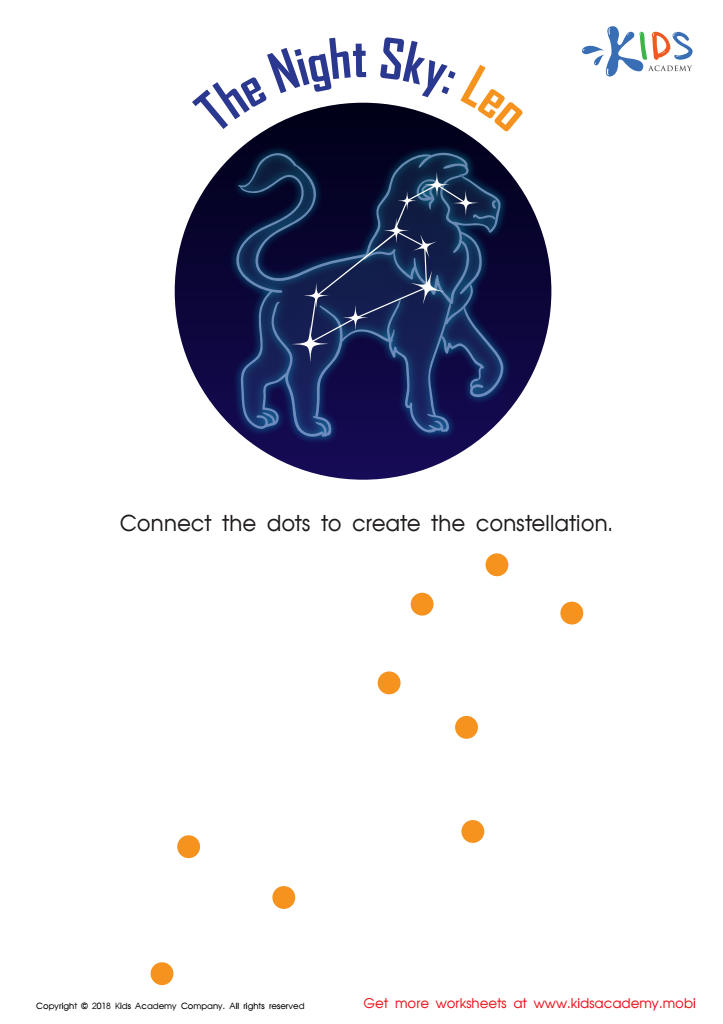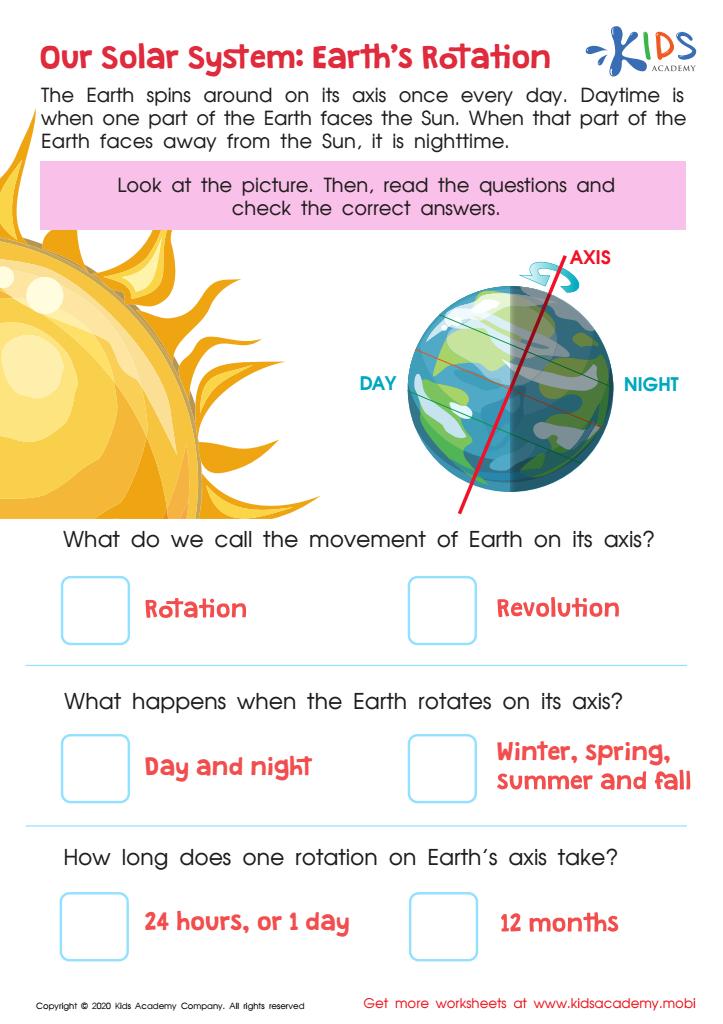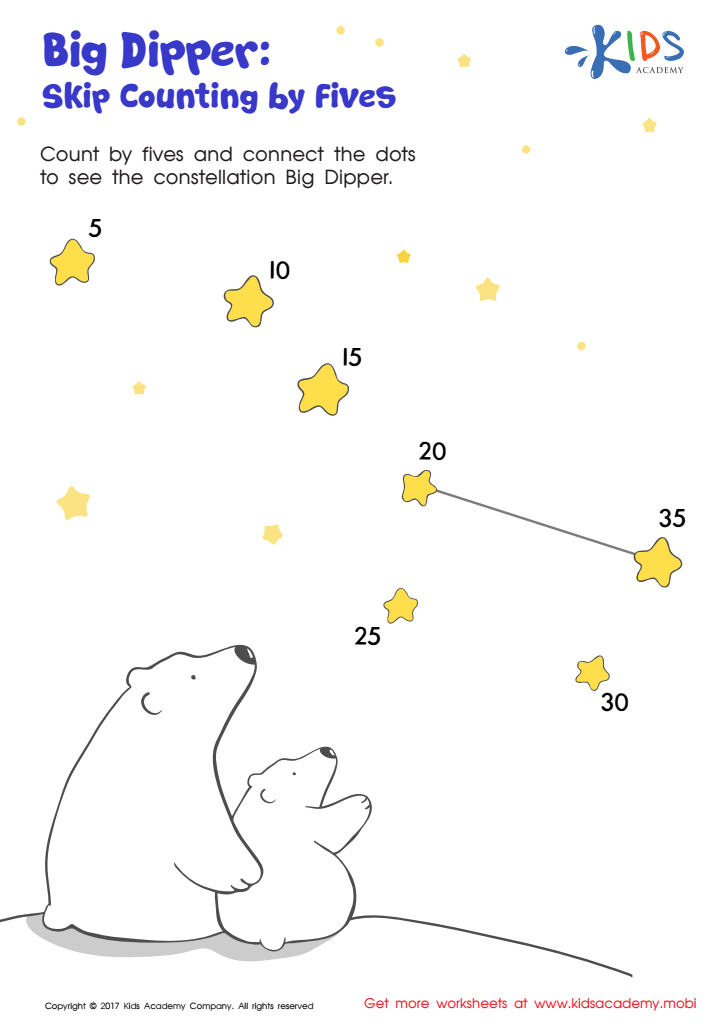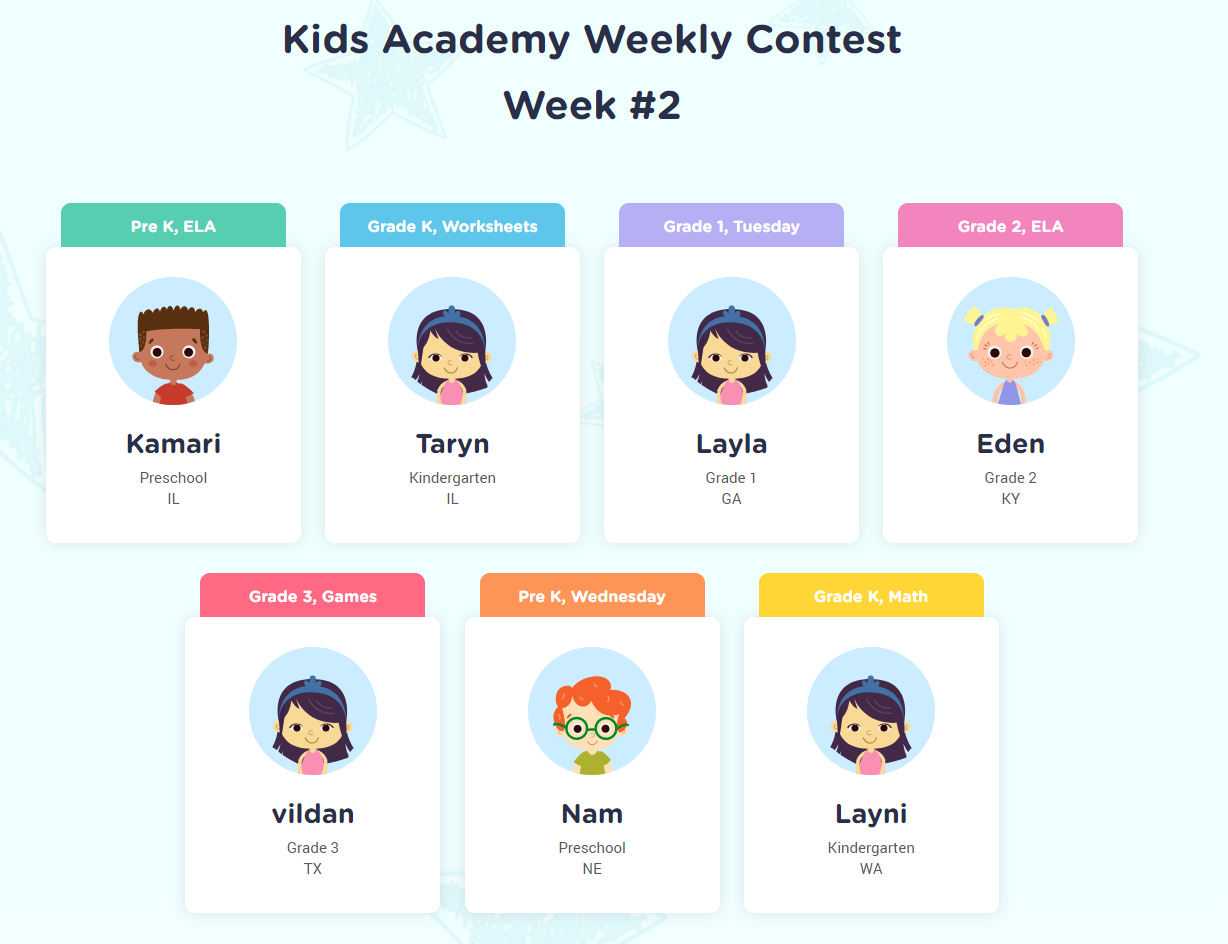Astronomy basics Normal Worksheets for Ages 7-8
3 filtered results
-
From - To
Discover the wonders of the universe with our "Astronomy Basics" worksheets designed for ages 7-8! These engaging and educational printables introduce young learners to fascinating topics like the solar system, stars, planets, and constellations. Each worksheet is crafted to foster curiosity and build foundational astronomy skills while improving reading, comprehension, and critical thinking abilities. Perfect for in-class activities or at-home enrichment, these resources make learning about space fun and accessible for young minds. Spark an early interest in science with Kids Academy's thoughtfully curated worksheets, guiding kids on an exciting journey through the cosmos!


The Night Sky: Leo Worksheet


Our Solar System: Earth's Rotation Printable
Astronomy basics play a crucial role in nurturing curiosity and fostering a sense of wonder among children aged 7-8. At this stage, kids are naturally inquisitive and eager to explore their surroundings. Introducing them to astronomy helps tap into this curiosity by presenting them with the mysteries of the universe in an engaging way. Understanding the basics of astronomy, such as the names and characteristics of planets, the phases of the moon, and constellations, fosters a deeper appreciation for science and stimulates critical thinking and problem-solving skills.
Learning astronomy also has educational benefits beyond science. It encourages reading, improves mathematical concepts through measurements and distances, and promotes an understanding of technology and its applications in real-world scenarios. Furthermore, discussing celestial events can enhance a child's sense of time and rhythm, such as understanding day and night cycles and the concept of time zones.
Moreover, engaging children in astronomy prompts interdisciplinary learning. For instance, it can include storytelling about various mythologies related to stars and planets, thereby melding science with culture. Finally, fostering an early interest in astronomy instills in children a lifelong passion for learning and exploring, contributing to well-rounded development and making them globally aware citizens.

 Assign to My Students
Assign to My Students















